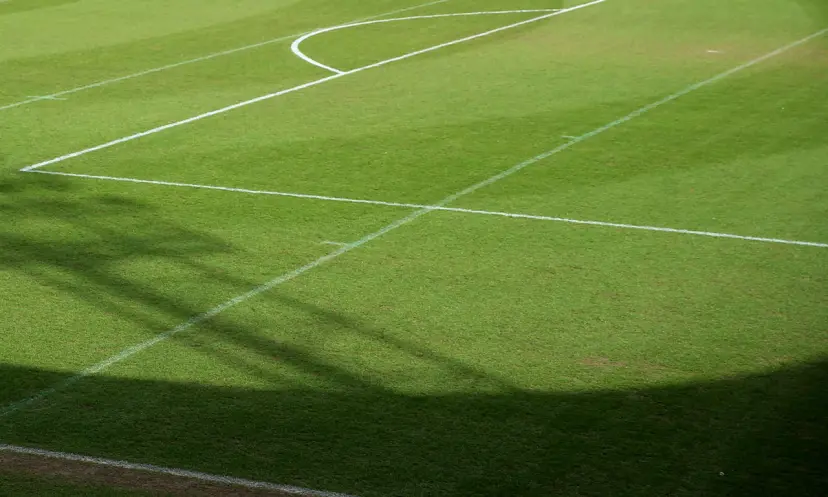What’s the best goal in FA Cup final history?
Published:
We look back at some of the most memorable strikes over the years
We’re only days away from the FA Cup final, with Arsenal and Chelsea set to go head-to-head at Wembley.
Big games call for big moments and we’ve seen plenty of stunning strikes at this stage over the years. Will anyone on Sunday deliver a goal to remember?
Before this year’s showpiece gets underway, we’ve been looking back at some of the best goals to grace the final.
With apologies to Michael Owen, Frank Lampard, Norman Whiteside, Santi Cazorla and more, we’ve narrowed it down to a shortlist of four. Who do you think scored the best goal?
Steven Gerrard (2006, vs West Ham United)
There’s a reason the 2006 showpiece is known as ‘The Gerrard Final’, to the heartbreak of West Ham fans everywhere.
The Hammers took a surprise two-goal lead inside the opening half-hour at the Millennium Stadium, but Liverpool quickly pulled one back when Gerrard’s lofted pass was tucked away by Djibril Cisse.
Gerrard became increasingly influential as the game went on and he got the equaliser with a fierce effort from Peter Crouch’s knock-down.
The Reds were on top now, but West Ham took the lead again when Paul Konchesky’s cross floated over Pepe Reina and into the back of the net.
As we headed into injury time, it looked like the underdogs were going to cling on for a famous win. But despite struggling with cramp, Gerrard summoned enough energy to race onto a headed clearance and smash in a thunderbolt from 35 yards, levelling the scores again at 3-3.
The game went to penalties, with Gerrard among the scorers as Liverpool won the shootout 3-1..
Ricky Villa (1981, vs Manchester City)
The 100th FA Cup final produced one of the most memorable goals in the competition’s history, as Ricky Villa danced through the City defence.
Spurs and City had needed a replay to find a winner, having played out a 1-1 draw in the previous game.
Villa opened the scoring inside the first 10 minutes of the second game, only for Steve MacKenzie to cancel it out almost instantly.
Kevin Reeves then put the Manchester side ahead from the penalty spot after 50 minutes. This time it was Spurs who hit back, with Garth Crooks getting the goal.
With little to separate the two sides, it looked like something special was needed. Enter Ricky Villa.
He picked up the ball outside the penalty area and turned away from one defender. Then he skipped past another City player, only to then turn inside the first defender again. With the goal now in sight, he kept his cool to slot it home.
Ray Parlour (2002, vs Chelsea)
Ray Parlour hadn’t scored a league goal for Arsenal during the entire 2001/02 campaign. That’s why TV presenter Tim Lovejoy famously said: “It’s only Ray Parlour,” as the midfielder was played through.
It looked like William Gallas had done enough to avert the danger and steer Parlour away from goal, but the ‘Romford Pele’ cut inside onto his stronger right foot.
Parlour curled a stunning effort in from outside the box, making Lovejoy instantly regret his words. Carlo Cudicini got a hand to it, but the shot was too powerful for him to keep out.
Parlour’s goal set Arsenal on the way to a 2-0 win over the Blues, sealing their second double under Arsene Wenger.
Roberto Di Matteo (1997, vs Middlesbrough)
Roberto Di Matteo didn’t waste any time against Middlesbrough, firing in after just 42 seconds. At the time, it was the fastest goal ever scored in an FA Cup final.
Dennis Wise played the ball to Di Matteo inside the Chelsea half. The Italian had plenty of space to run into, so he drove forward.
Mark Hughes was occupying the Boro defence, which meant Di Matteo wasn’t closed down. He took full advantage, unleashing a rocket from 30 yards, which struck the crossbar and bounced in.
The strike set Chelsea on their way to a 2-0 win and their first trophy for 27 years.
Cast your vote
Which of these strikes was your favourite? Cast your vote in our Twitter poll.
⚽️ What’s the best goal in FA Cup final history?
— Coral (@Coral) July 30, 2020
All odds and markets correct as of date of publication.









